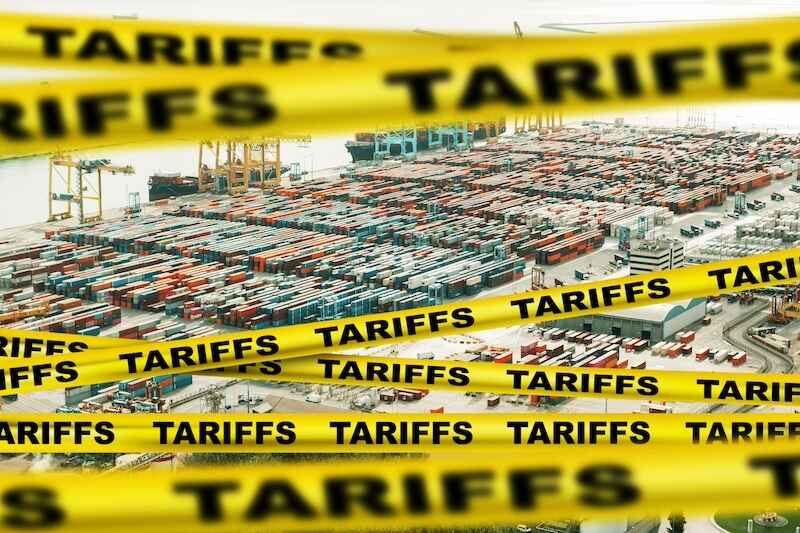The U.S. Will Never Get What It Really Wants in a Trade Deal with China
Shah Gilani|January 15, 2019
Besides the U.S. and China saber-rattling over control of the South China Sea, the reason the U.S. will never get what it really wants in a trade deal is because Chinese “trade” is how China plays its foreign policy game.
And they’re very dirty players.
What the U.S. needs to get out of a trade deal is for China to stop playing dirty, which it will never do.
Here’s what the Chinese have done using “trade,” how corrupt they really are, what the U.S. has already lost, and why any announced trade deal will only ever be fake news…
Real Fake News
Here’s a quick recap of what we talked about on Friday:
Last Tuesday, January 8, China Central Television reported the deployment of DF-26 IRBM, called “Guam killer,” intermediate range ballistic missiles, in China’s remote northwest plateau.
Terrifyingly enough, it isn’t the first time that Chinese have created something this sinister – consider DF-21D, the “carrier killer.” That thing could obliterate millions of Americans in a cataclysmic event that rivals 9/11 and Pearl Harbor combined. You can learn more about that missile by clicking here.
With the U.S. openly challenging China militarily, and China responding by deploying new ballistic missiles and announcing it on Chinese television, how could the two superpower nations amicably resolve trade and tariff disputes as their militaries face off?
China isn’t going to back down, and there’s no way the U.S. can back down. Even if the U.S. did, it would announce to the world that we’re ceding control of a vast area of Sea to China.
Now, let’s jump in…
American Memories Are Short
Back in 2009, we learned that one of the hottest holiday gifts that season, digital photo frames, sold under different names by the likes of Walmart Inc. (NYSE:WMT), Circuit City, and Amazon.com Inc. (NasdaqGS:AMZN), manufactured in China, carried a nasty surprise – malicious software code that tried to hop onto personal computers when the frames were plugged in.
It turns out the frames were carrying code to log keystrokes, steal data, and could call out to other malicious code once it installed itself on a PC.
They were eventually recalled.
But that didn’t stop Americans (or anyone else) from buying Chinese electronic products – from U.S. intelligence services and police departments buying closed circuit TVs from Chinese manufacturers, from U.S. and other global telecom companies buying equipment from Chinese conglomerate Huawei, the biggest telecom equipment manufacturer in the world.
[URGENT] Attention Americans: We refuse to ignore this Chinese threat
Now, I’m not saying Chinese manufactured devices – most of their technology stolen by means of reverse engineering other patented products, which is how Huawei got into the business in the first place – have trap doors or means of spying or transmitting the same images they capture back to the People’s Liberation Army, but they could.
They’ve done it before. Maybe that’s what’s really going on with Huawei. Maybe that’s too scary for the world to know and whatever’s really up with Huawei’s equipment being ripped out by the likes of British telecom companies and others, we’ll find out.
But probably not. Because “we can’t handle the truth.”
The truth being, that China extends its reach by means of its trade.
Playing Dirty
Putting aside things like stealing technology, corporate espionage, hacking government facilities, and so on, the pretext of “free trade” is how China outwardly conducts its foreign policy objectives.
By offering financing and equipment and cheap Chinese labor, China has established “trade” deals and major projects in 70 countries.
Most recently, China’s been pushing its New Silk Road Initiative, also known as One Belt, One Road.
In order to facilitate more trade with Middle Eastern countries, India, Europe, and Africa, the Silk Road plan is to develop new maritime routes, ports and shipping lanes, new rail lines, highways, and pipelines that connects trade partners with China.
In order to get closer to the countries China wants to “trade” with more, they backed the new $100 billion Asia Infrastructure Investment Bank, a $40 billion Silk Road Fund, and the $100 billion New Development Bank with other BRIC emerging markets countries.
What critics say, however, is China’s increasing influence with its trading partners is a trap.
Not only are the prime beneficiaries of trade deals and building out massive projects the Chinese, because Chinese state-run banks are financing deals, but Chinese equipment is also being used to build everything, and Chinese labor is most of the labor force ebbing employed.
What trading partners get is loaded with debt.
That’s a good strategic goal, if you’re China.
But, it’s not a clean playing field. It’s massively dirty.
We know how much graft and corruption the Chinese employ because we’ve now got proof.
Last week Malaysian investigators who raided former Malaysian prime minister Najib Razak’s offices in connection with the global fraud we know as 1MDB, gave certain documents to Wall Street Journal reporters.
What the Journal revealed is China’s president and other top officials tried to bail out Razak and his corrupt cronies by offering to pay 1MDB’s debt payments.
[CRUCIAL] What this South China Sea update means for Americans
No, not by lending them money, by arranging infrastructure deals in Malaysia that they would mark up the value of, lend Razak the money for them, and he would be able to siphon off billions of dollars to pay down 1MDB’s debts and buy his way out of ongoing global investigations of the fraud.
That’s how the Chinese “trade.”
That’s what the U.S. must kill in a comprehensive trade deal with China.
And that’s never going to happen because that’s how the Chinese trade and why they trade the way they do.
Any announced deal will just be an appeasement to the U.S. and to China, so the two countries can claim they’ve come to terms and going forward everything’s going to be fairer.
That’s the definition of fake news.
Watch out for it.
Sincerely,
![]()
Shah

Shah Gilani
Shah Gilani is the Chief Investment Strategist of Manward Press. Shah is a sought-after market commentator… a former hedge fund manager… and a veteran of the Chicago Board of Options Exchange. He ran the futures and options division at the largest retail bank in Britain… and called the implosion of U.S. financial markets (AND the mega bull run that followed). Now at the helm of Manward, Shah is focused tightly on one goal: To do his part to make subscribers wealthier, happier and more free.

